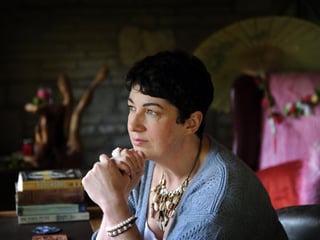Why is most romantic fiction dominated by women writers? asks Leeds author


As an author of romantic comedies, I’m one of those few, and so I guess I’m well placed to reflect on this, not least because my career path has been unusual.
I have learned that there are male preferences that help explain the puzzle, but also that it’s a myth that men feel less, have fewer insecurities, or less desire for romance and connection. These subtle prejudices are as inaccurate as supposing that women cannot do maths and science. Men do, however, express themselves in subtly different ways.
Advertisement
Hide AdAdvertisement
Hide AdSo my childhood influences scarcely hinted at my subsequent career. Or so it would seem. If you expand the definition of romantic drama, however, my early years were filled with the most heart-rending, achingly emotional romantic tales rendered by alpha males. Their names included Mick Jagger, Bob Dylan and John Lennon. There were a lot of tears and much insecurity; probably more direct soul-baring than most female songwriters, until Alanis Morrissette came along. Above all, these singers expressed an intense longing; this desire really to know a woman as well as love her.
Music probably makes it easier for a man to express his deepest romantic yearnings because of our instinctive preference for activity over talking or reading, and for belonging to a team; features that a band offers which tapping away at a laptop does not.
In my case, I lacked any musical ability, so if I were to pen a heartfelt tale about love and longing, it would have to be in written form. I love the intense intimacy of a ‘will-they, won’t-they’ tale.
In an action-based drama, events force the protagonists to respond. In a romance, the main characters are the agents. I am fascinated by the point of decision-making, when you are not sure if it’s a big decision or not, or how it will play out. And, of course, there is the pain in learning that doing nothing is still a decision.
Advertisement
Hide AdAdvertisement
Hide AdSuch a focus doesn’t feel inherently unmasculine to me, but studies have shown that over 80 per cent of readers of romantic books are women and when I have attended a romance writers’ conference there have been far fewer men than women.
One frustration I have with some romantic novels (by no means all) is the limited dimensions of the male leads; in particular, their lack of insecurity. They seem supremely confident, while flip flopping between choosing to commit or not, without any fear of loss on their part.
The tale is exclusively from the female lead’s point of view. So my distinctive, if not unique, approach is to include a male perspective, and to show his vulnerabilities.
With A Love of Two Halves, my latest, Leeds-based romantic comedy, the point of view switches from female to male throughout, between Karen and George. This was a risk, but my (mostly female) readership have loved it so far.
Advertisement
Hide AdAdvertisement
Hide AdI think they enjoy the glimpses of what Karen – who is baffled by sports betting and the rituals of football fans – calls ‘the strange world of men’.
I don’t expect to start a trend. I think I shall stay unusual. But I hope that my books gently probe some of the less obvious gender stereotyping – and above all, entertain.
A Love of Two Halves (Unbound) is a romantic comedy by PJ Whiteley. PJ Whiteley, who writes non-fiction under his full name Philip Whiteley, lives in Wakefield and has an office in Leeds.
Editor’s note: first and foremost - and rarely have I written down these words with more sincerity - I hope this finds you well.
Advertisement
Hide AdAdvertisement
Hide AdAlmost certainly you are here because you value the quality and the integrity of the journalism produced by The Yorkshire Post’s journalists - almost all of which live alongside you in Yorkshire, spending the wages they earn with Yorkshire businesses - who last year took this title to the industry watchdog’s Most Trusted Newspaper in Britain accolade.
And that is why I must make an urgent request of you: as advertising revenue declines, your support becomes evermore crucial to the maintenance of the journalistic standards expected of The Yorkshire Post. If you can, safely, please buy a paper or take up a subscription. We want to continue to make you proud of Yorkshire’s National Newspaper but we are going to need your help.
Postal subscription copies can be ordered by calling 0330 4030066 or by emailing [email protected]. Vouchers, to be exchanged at retail sales outlets - our newsagents need you, too - can be subscribed to by contacting subscriptions on 0330 1235950 or by visiting www.localsubsplus.co.uk where you should select The Yorkshire Post from the list of titles available.
If you want to help right now, download our tablet app from the App / Play Stores. Every contribution you make helps to provide this county with the best regional journalism in the country.
Sincerely. Thank you.
James Mitchinson
Editor
